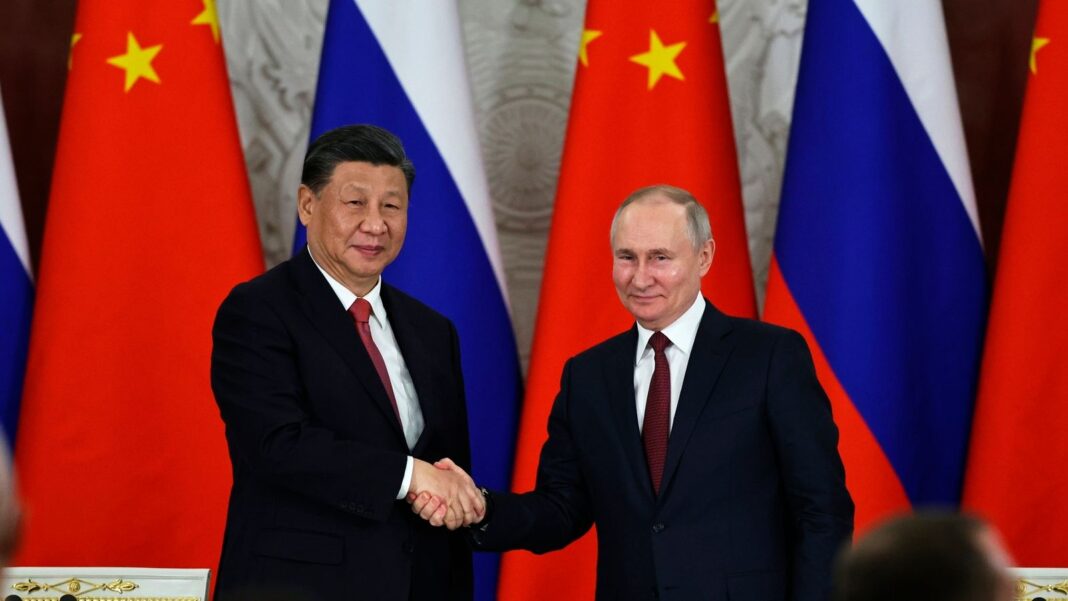You’ve heard of the transatlantic ‘Special Relationship’. This is the “No Limits” partnership – a term coined when Vladimir Putin visited Beijing in February 2022.
It was just days before he ordered the full-scale invasion of Ukraine.
A lot’s changed for Russia since then, of course.
It’s now an international pariah. One thing that hasn’t changed, though, is China’s support.
Why? For one, Presidents Xi and Putin share a similar outlook. Both oppose external “interference” in domestic affairs, and long for a “multipolar” world.
There are economic benefits for both, too. But this is not an equal partnership. The power lies with Beijing.
“Because of the war, Russia is in desperate need of any kind of partnership”, said Alexandra Prokopenko, a Berlin-based fellow at the Carnegie Russia Eurasia Center, adding that Beijing had provided “a real lifeline” for Moscow.
“China is not only a market for Russian oil and gas, which is the major source of the currency for the Russian budget, but also China’s become a very important source of imports to Russia,” she said.
Cardboard cut-outs of the two leaders on Moscow’s main tourist street

Cheap energy flows from Russia to China, in return for cars and affordable electronics
Putin won’t like being the junior partner, but it’s a role he’s clearly willing to accept, given the benefits.
Last year, trade between the two nations soared to $240bn (£189bn) – an increase of more than 25%.
Cheap energy flows one way; cars and telephones come back.
But the West fears that’s not all Russia is importing.
The US and others believe Chinese products and dual-use goods, like machine tools and microelectronics, are also fuelling the Kremlin’s war machine, by filling critical gaps in its military-industrial complex.
China denies supplying any actual weaponry, and maintains a neutral stance on Ukraine.
Read more from Sky News:
Slovak prime minister shot and in ‘life-threatening condition’
Interpol red notice issued for fugitive gangster ‘The Fly’
‘Super fluffy’ candy floss planet bigger than Jupiter discovered

Keep up with all the latest news from the UK and around the world by following Sky News
But the assertions have done little to dampen suspicions, with US secretary of state Antony Blinken reiterating his “deep concern” on Wednesday.
Putin’s entourage might also raise eyebrows. He’ll be accompanied by his new defence minister, Andrei Belousov, with Putin widely expected to push for more support for Russia’s militarised economy.
But despite the “no limits” characterisation of the relationship, analysts say it does have boundaries.
“China knows red lines”, Prokopenko said, referring to Washington’s concerns over the extent of Beijing’s support.
In her view, the partnership between Xi and Putin should be viewed “as part of a big, big game between the US and China”.
In that sense, then, this visit is likely to be more symbolic than anything else. It’s the first foreign trip of Putin’s new presidential term and signals his priorities.
But in terms of the optics – two strongmen leaders defying Western pressure – one of them is clearly stronger than the other.







